

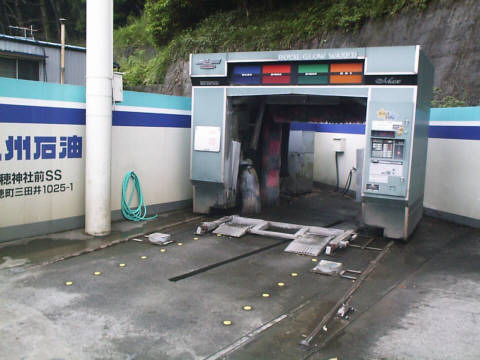
With every square foot of land at a premium, having an American style car wash is just not worth it. Hence you have the Japanese version, where the car wash moves and the car is stationary.
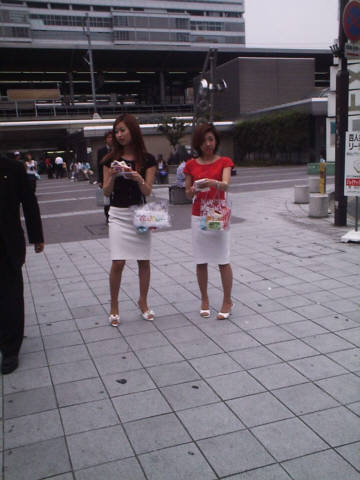
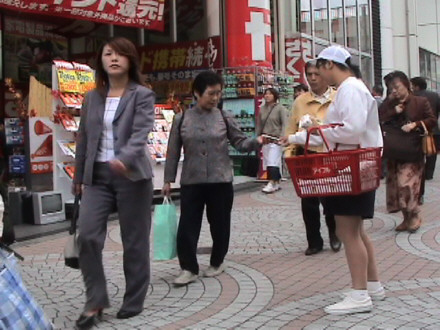
At the larger train stations and shopping squares, you will often find young people passing out freebies to all passers-by, usually small packets of tissues with an ad in them, but also product samples and new goods that just hit the store shelves. Especially in the summertime with the crushing humidity, having some tissues in your pocket to wipe your brow is indeed a welcome thing. Little items and ads for bars in the red light district are also passed around nowadays, and these 2 ladies in the photo are most likely here for that.
While it was normal 10 years ago to pass out everything to everyone, with the economy in a coma now some people won't bother offering tissues to foreigners.
Click here for Quicktime Video
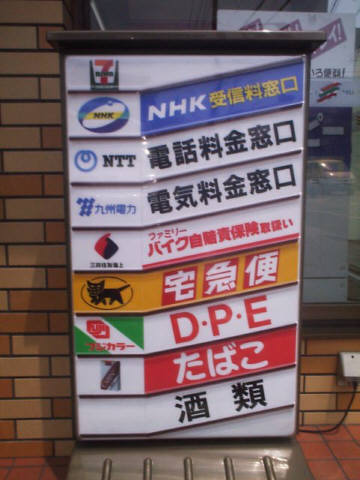
While you won't find the bargain priced huge fountain drinks like in Canada and the U.S., many convenience stores in Japan do offer some very nice services, as shown in these boards outside each store. In this board, the store shows you can pay bills for owning a television (which many people ignore), phone bills from NTT, electric bills, and motor bike insurance. You can also send parcels to people through private companies called takyubin, as well as D.P.E. which means developing your camera film. The bottom two show they sell liquor and cigarettes as well. The services at convenience stores, or konbini, as they're called, can vary wildly, however. It takes miles of red tape to get anything done in Japan, but the bureaucracy to get a liquor license is truly monumental. Many of the stores that sell liquor bought out some previous mom-and-pop liquor store who cashed in their chips. Some stores are also putting in ATMs, but unlike the Japanese post offices their machines are for cards in Japanese credit systems only. If you live in the sticks though with long distances between everything, stores like this can be a godsend.

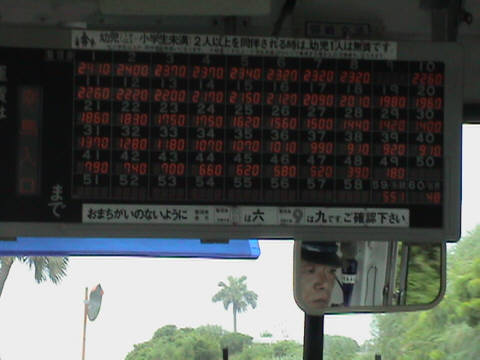
In Japan, the distance you ride determines how much you will pay. When you board the bus, you take a ticket with a number on it. As the bus rolls you can look at a board by the driver and see what your fare will be. You then drop the fare in the machine by the driver. You can also easily get change for 1000 yen bills, 500 and 100 yen coins from the same machine.
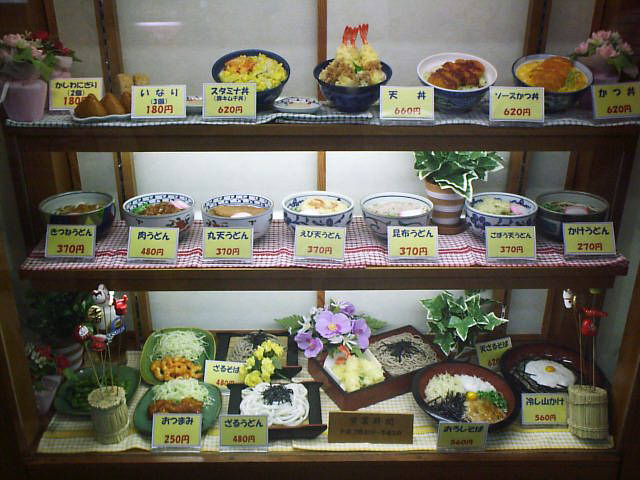
One important factor about Japanese food is not only its taste, but its artistic preparation as well. And extending from that are these plastic replicas of Japanese dishes at the front of the restaurant to show how delicious they'll be. Even glasses of beer with foam look so real you have to squint at the detail to tell them apart from the real deal. Not all restaurants show these, but many do and they offer you one useful feature -- if you can't read the menu, just take the waitress outside and point at what you want.
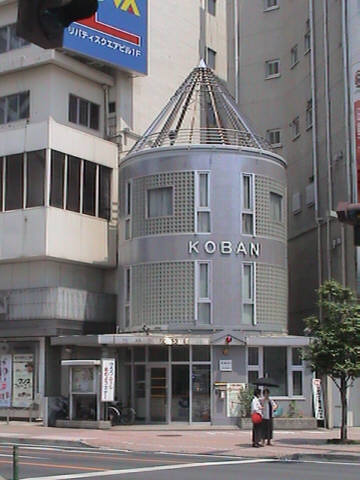
The small police box, or koban, is one more element that stands out in Japan. If you ever need a cop, you might find a couple walk or bicycle over to you from one of these neighborhood stations instead of waiting for 45 minutes for a cop to drive over from downtown. The one in the photo prominantly displays what it is but many koban are little more than a drab old shack with a red light at the entrance.
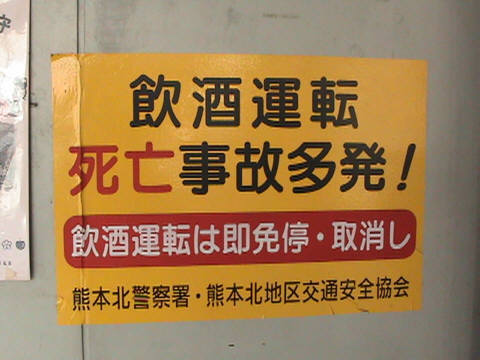

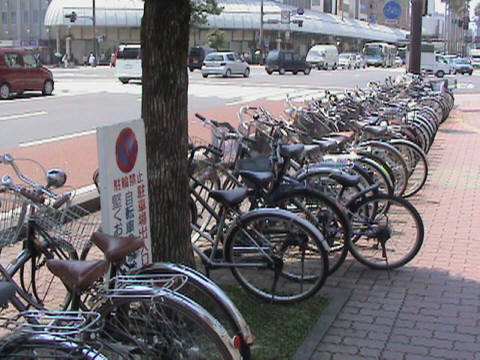
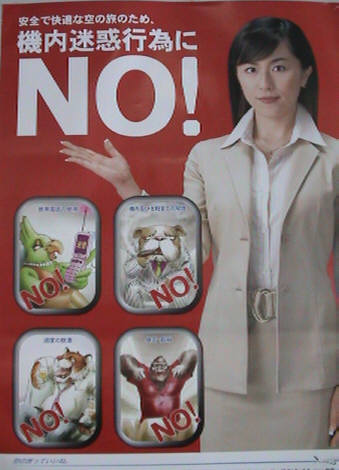
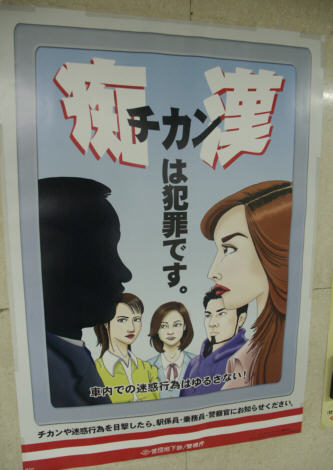
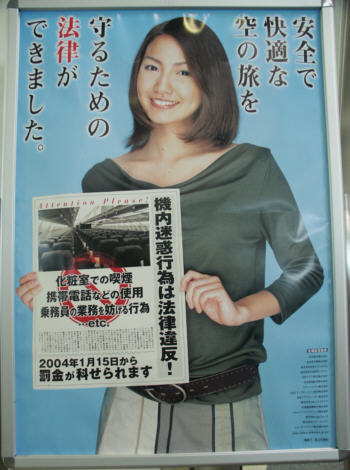
All across the country on telephone poles, train station walls, buses, and school bulletin boards, you can catch a glimpse of some of the underside of a society. Unreadable by the tourists walking past though, there they are, each with a story the fluffy tourist guides avoid.
Upper left: Under the Influence - A warning about drunk driving, as that area is well known for several drunk driving accidents.
Upper right: Claiming Your Territory - A warning to curb your dog....unfortunately, it's quite easy to see why there are a lot of signs like this.
Mid-left: Gotta Park Somewhere - A sign by a train station not to park your bicycle there. But since the cops don't feel like doing anything to a locked bike, it's almost always ignored.
Mid-right: Wild, Wild Life - A warning about boarding a plane and 1) using a cell phone, 2) smoking, 3) getting drunk, and 4) raising hell while on board.
Lower Left: Chikan - The Subway Groper - Every schoolgirl and woman in Japan knows about the groper in crowded trains, ready to stick his hand up a skirt when trains and subways are packed. Many women passively take it instead of raise a noise and be embarassed in front of everyone. The poster shows it's illegal, but it's still a daily occurrence in the land of crime-free harmony.
Lower right: Happy Fines For Happy People With Happy Problems - This cheerful sign is for all the chain-smoking drug addicts on airplanes who try to sneak a cancer stick in the lavatory, neurotics glued to their cell phones, as well as anyone obstructing the crew. From Jan. 15, 2004 you now get a stiff fine.
The Don-Quijote Song The Bic-Camera Song
The Bic-Camera Song The Yamada Denki Song
The Yamada Denki Song
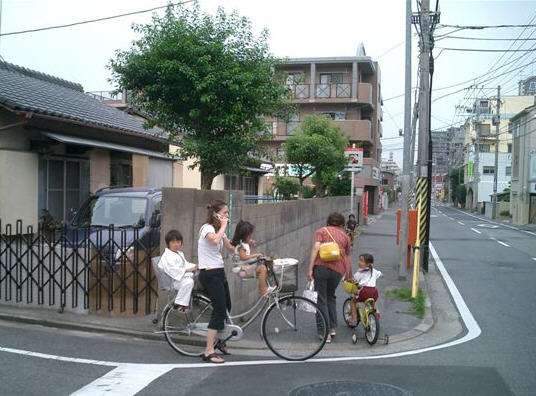
One thing that you can see all over Japan is the mother taking the kids to school or back home -- not many soccer moms driving gas-chugging SUV's here. Parking is often tough even in the suburbs and gas prices compared to the US or Canada will make your eyes fall out. The term "mama-chari" comes from mama for mother, and "chari", a contraction of "charinko", which is Japanese slang for bicycle (jitensha). Technically it may be illegal to carry your kids around this way, but it is still a common sight and a way to get around and burn some calories as well.
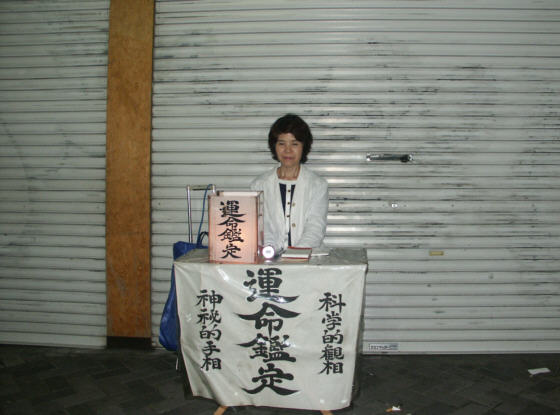
The Japanese tend to be quite a superstitious lot, and on some street corners after the shops have closed (usually 8 PM) you can sometimes see these older women ready to look at your hands and tell you your "future" -- for a small price of course. You'd be amazed at how many highly educated in Japan have been trained to be completely intellectual, yet put full faith in the wildest superstitions you can imagine -- of course, they still think all old western superstitions are just rubbish. Perhaps the biggest old wive's tale Japanese go for, which makes any interest in horoscopes elsewhere look tame, is that your blood type determines your personality. Japanese doctors laugh their heads off when you mention this to them, but it's yet another belief in putting form over substance.
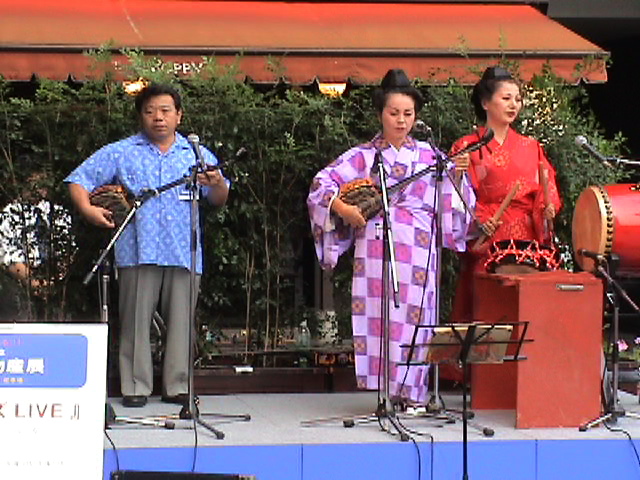
Click here for Quicktime Video
Here is something you don't see wherever you come from -- and don't see much in the rest of Japan either. This was a small concert of Okinawan musicians singing a traditional folk song -- not in Okinawa, but on one of Japan's main islands in front of a department store. The dewey-eyed Japan newcomer might wax poetic about how deep Japan's culture is; how wonderful they still celebrate their ancient heritage. But the real reason they're doing it is to drum up some tourism for Okinawa -- any they can scrape up. Okinawa is one of the poorest regions of Japan, and without tourism the whole place would be doomed. With the Japanese economy still floundering, the impact has been all that much harder.


To see my page of photos of Japanese holidays, click
Thanks for stopping by!!




Or go to The Japan FAQ: Know Before You Go
Or you can see these other pages in The Japan FAQ Annex Go to Quick Donations
to donate free food and help to the needy.

